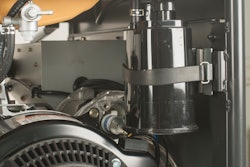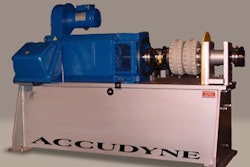Researchers at Michigan State University (MSU) have developed a new biofuel production process which creates 20 times more energy than current methods.
The new method uses microbes to produce biofuel and hydrogen while consuming agricultural wastes. MSU microbiologist Gemma Reguera developed microbial electrolysis cells, called MECs, which use bacteria to breakdown and ferment agricultural waste into ethanol. A second bacteria is also used in the process to remove the waste fermentation byproducts and create electricity at the same time.
By carefully choosing a fermentative bacterium that would efficiently turn agricultural wastes into ethanol, and produce byproducts that could be metabolized by the second electricity-producing bacterium, Reguera and her team were averaged 35 to 40% energy recovery from the fermentation process alone.
Learn more by reading the full press release.



















